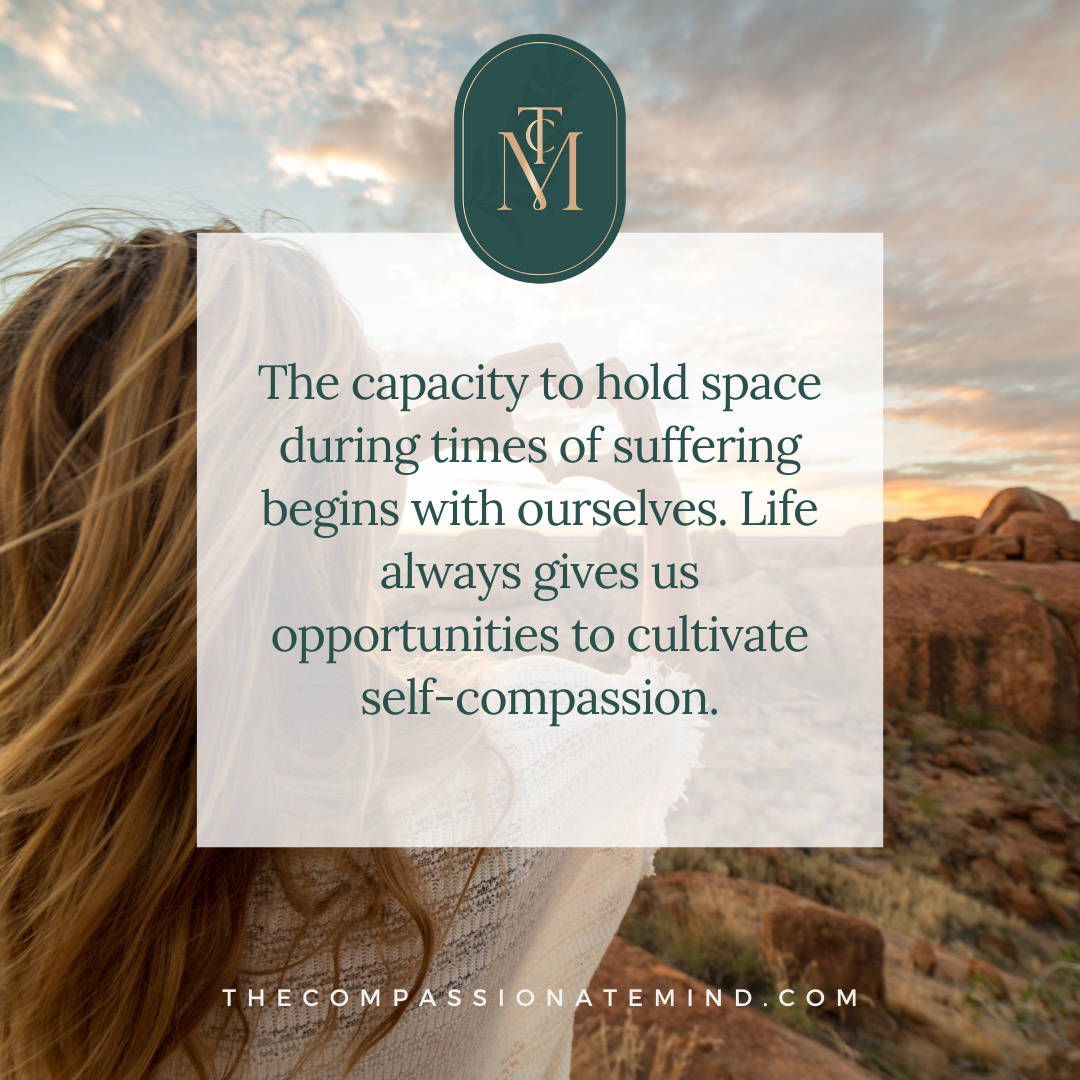Self-Compassion Practices For Times Of Stress And Struggle
How do you talk to yourself when you’re having a hard time?
Being kind to ourselves doesn’t come naturally to many of us.
I used to think self-compassion was about doing nice things for myself, like getting a massage or attending a yoga class. But the truth is that doing these things for ourselves doesn’t automatically translate into being kinder and gentler with ourselves.
We can do these things and still have an inner voice that’s quite nasty.
Many of us want to be kinder to ourselves, but we don’t know how to do it or what it means to be more self-compassionate.
What is self-compassion?
Self-compassion means being kind, gentle, and accepting of ourselves when we’re going through a difficult time.
This suffering or stress isn’t just about the big things in our lives; it’s also about all the little things that happen in a day that trigger discomfort in us.
When we accept that all of the little things, as well as the significant challenges, are worthy of our kindness, we shift the nature of our relationship with ourselves.
Self-compassion is a self-soothing activity.

When we learn to soothe ourselves from the inside, we don’t need to turn to things like eating, drinking, shopping, or busyness to make us feel better.
In the book Self-Compassion: The Proven Power of Being Kind to Yourself, Kristin Neff, Ph.D., identifies that there are three elements of self-compassion:
Self-kindness entails being warm and understanding toward ourselves when we fail, suffer, or feel inadequate.
Common humanity helps us recognize that “I” am not the only person who suffers or makes mistakes.
Mindfulness involves bringing a balanced and non-judging approach to our emotions so that our feelings are neither suppressed nor exaggerated.
One of my favourite practices is the Self-Compassion Break.
It’s a practice you can do throughout the day when you’re feeling stressed or dealing with difficult emotions or experiences. You can learn the simple steps and listen to a 5-minute guided recording HERE.
How self-compassionate are you?
The saying that you can’t change what you don’t acknowledge applies to learning how to be kinder to ourselves.
Becoming aware of that little voice in our head is the starting place for shifting some of our patterns of relating to ourselves.
I experimented and completed the self-compassion quiz on Dr. Kristin Neff’s website.
I highly recommend you spend a few minutes and complete the quiz. By doing the examination, you’ll get a better idea about self-compassion and where you stand regarding how kind you are to yourself.
I was surprised that even though I had been a Nurse for many years and prided myself in compassion, this quiz helped me see that I wasn’t extending the same kindness towards myself.
When you’re feeling stressed or you’re suffering, practice RAIN.
The Practice of Rain
In addition to the Self-Compassion Break, the following video with Tara Brach guides us through the sitting practice of RAIN (Recognize, Allow, Investigate, Nurture).
While RAIN is a helpful practice for minor frustrations, it becomes gold when going through the big stuff. When I say big stuff, I mean major health issues, spiritual crises like the dark night of the soul, or relationship issues that are bound to happen.
For many of us, when these little or big things happen, we battle in our minds- without being consciously aware.
We turn away from our suffering because we don’t know how to deal with it wisely.
RAIN helps us learn to observe our uncomfortable thoughts and feelings and work with them. It gives us a way to be with suffering that enables it to move through us.
We literally learn how to transform ourselves with kindness.
It’s a potent practice that helps us to be present with ourselves and our lives in nourishing ways.
If you feel called, comment below to share with our community. We’d love to hear from you!

